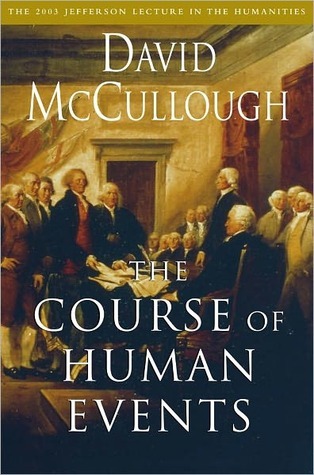More on this book
Community
Kindle Notes & Highlights
Nor were they gods. Indeed, to see them as gods or godlike is to do disservice to their memories. Gods, after all, don’t deserve a lot of credit because they can do whatever they wish. Those we call the Founders were living men. None was perfect. Each had his human flaws and failings, his weaknesses. They made mistakes, let others down, let themselves down. Washington could be foolhardy and ill-tempered. Adams could be vain, irritable; Jefferson evasive, at times duplicitous. And even in their day, many saw stunning hypocrisy in the cause of liberty being championed by slave masters.
They were imperfect mortals, human beings. Jefferson made the point in the very first line of the Declaration of Independence. “When in the course of human events . . .” The accent should be on the word human.
We must never forget either how hard they worked. Nothing came easy. Nothing. Just getting through a day in the eighteenth century meant difficulties, discomforts, and effort of a kind we seldom ever think about.
But what did they, the Founders, mean by the expression “pursuit of happiness”? It didn’t mean long vacations or material possessions or ease. As much as anything it meant the life of the mind and spirit. It meant education and the love of learning, the liberty to think for oneself.
Once, when a friend came to say he hadn’t money enough to send his son to college, Washington agreed to help—providing a hundred pounds in all, a sizable sum then—and with the hope, as he wrote, that the boy’s education would “not only promote his own happiness, but the future welfare of others . . .” For Washington, happiness derived both from learning and employing the benefits of learning to further the welfare of others.
The place of education in the values of the first presidents is unmistakable. Washington contributed generously, some $20,000 in stock, to the founding of what would become Washington and Lee University in Virginia. His gift was the largest donation ever made to any educational institution in the nation until then and has since grown to a substantial part of the endowment.
The American experiment was from its start an unfulfilled promise. There was much work to be done. There were glaring flaws to correct, unfinished business to attend to, improvements and necessary adjustments to devise in order to keep pace with the onrush of growth and change and expanding opportunities. Those brave, high-minded people of earlier times gave us stars to steer by—a government of laws not of men, equal justice before the law, the importance of the individual, the ideal of equality, freedom of religion, freedom of thought and expression, and the love of learning. From them, in
...more


